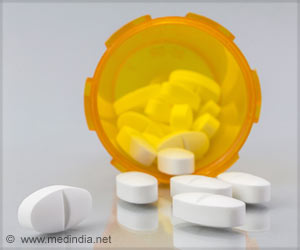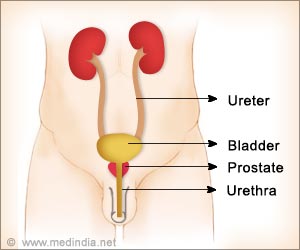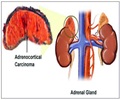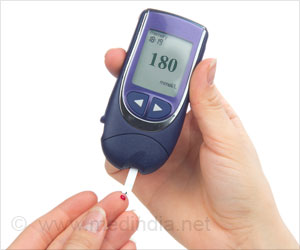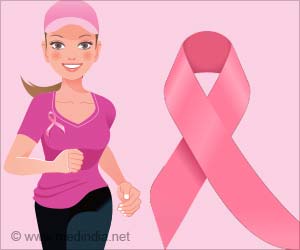Counteract age-related testosterone decline and revitalize energy, libido, and overall well-being with natural and medical testosterone boosters.
- Age-related testosterone decline can be countered using both natural supplements and medical treatments
- While natural boosters like Fenugreek and Vitamin D can elevate testosterone, significant deficiencies may require Testosterone Replacement Therapy (TRT)
- Lifestyle enhancements like a balanced diet, regular exercise, and stress management play a pivotal role in maintaining optimal testosterone levels
A validated age-related normative model for male total testosterone shows increasing variance but no decline after age 40 years
Go to source). Testosterone, the primary male sex hormone, is pivotal in maintaining muscle mass, bone density, and libido. As age progresses, the decline in its production can lead to fatigue, reduced sexual desire, weight gain, and even mood disturbances (2✔ ✔Trusted Source
Low Testosterone in Adolescents & Young Adults
Go to source). To counteract these changes, many males turn to testosterone boosters. In this article, we'll explore the best testosterone boosters for males over 40, focusing on both natural and medical options.
Natural Testosterone Boosters
These are dietary supplements that can help increase testosterone levels naturally. Some of the most recommended natural boosters include:Fenugreek:
An herb from Arabic regions and India, Fenugreek has been traditionally used to enhance male potency. Several studies suggest that it can increase testosterone levels by inhibiting enzymes that convert testosterone into estrogen (3✔ ✔Trusted SourceFenugreek and Its Effects on Muscle Performance: A Systematic Review
Go to source).
Vitamin D:
Often known as the 'sunshine vitamin', Vitamin D can act like a hormone in the body and its receptors are present throughout the brain and body. A deficiency in Vitamin D has been linked to low testosterone levels (4✔ ✔Trusted SourceCausal Link Between Vitamin D and Total Testosterone in Men: A Mendelian Randomization Analysis
Go to source).
Zinc:
An essential mineral that has antioxidant properties and plays a role in numerous bodily processes. Maintaining appropriate zinc levels is crucial for male reproductive health, and zinc supplementation has been linked to an increase in testosterone (5✔ ✔Trusted SourceCorrelation between serum zinc and testosterone: A systematic review
Go to source).
D-Aspartic Acid:
An amino acid regulator of testosterone synthesis, D-Aspartic Acid can boost the production of the hormone in the testes (6✔ ✔Trusted SourceThe effects of d-aspartic acid supplementation in resistance-trained men over a three month training period: A randomised controlled trial
Go to source).
Tongkat Ali:
A remedy from Malaysian folk medicine, Tongkat Ali has been termed the 'Malaysian Viagra' due to its strong aphrodisiac qualities. Recent studies have shown that it can help in increasing testosterone levels in males over 40 (7✔ ✔Trusted SourceTongkat Ali as a potential herbal supplement for physically active male and female seniors--a pilot study
Go to source).
Medical Testosterone Boosters
For men with a significant testosterone deficiency, natural supplements might not be enough. In such cases, doctors might recommend testosterone replacement therapy (TRT) (8✔ ✔Trusted SourcePharmacology of testosterone replacement therapy preparations
Go to source). There are various forms of TRT including:
Gels:
These are applied directly to the skin and then absorbed into the bloodstream.Injections:
Directly injected into the bloodstream, these have a longer-lasting effect than gels.Patches:
Worn on the upper body, they release testosterone gradually.Implants:
These are pellets that are surgically implanted under the skin and slowly release testosterone.While TRT can dramatically affect testosterone levels and its associated symptoms, they come with potential side effects. These might include sleep apnea, acne flares, and a higher risk of prostate abnormalities. Hence, TRT should be taken under the strict guidance of a healthcare professional.
Lifestyle Enhancements: The Natural Testosterone Boost
Besides the aforementioned boosters, some lifestyle changes can aid in naturally enhancing testosterone levels (9✔ ✔Trusted SourceLifestyle modifications and erectile dysfunction: what can be expected?
Go to source):
Diet:
Consuming a balanced diet rich in zinc, vitamin D, and omega-3 fatty acids can potentially help in raising testosterone levels.Exercise:
Regular physical activity, especially resistance training, has been shown to boost testosterone levels.Manage Stress:
Chronic stress leads to elevated levels of cortisol, a hormone that can reduce testosterone levels. Engaging in stress-reducing practices like meditation can help.Adequate Sleep:
Ensuring 7-9 hours of sleep each night is crucial for maintaining optimal testosterone levels.While testosterone decline is a natural part of aging, it doesn't mean men must live with its undesirable effects. With the right combination of natural supplements, medical treatments, and lifestyle enhancements, males over 40 can revitalize their vigor, energy, and overall well-being. However, it's essential to remember that testosterone boosters, especially medical treatments, should be considered after comprehensive discussions with healthcare professionals. They can provide personalized advice based on individual health profiles, ensuring that the journey to rejuvenated testosterone levels is both effective and safe.
References:
- A validated age-related normative model for male total testosterone shows increasing variance but no decline after age 40 years - (https://pubmed.ncbi.nlm.nih.gov/25295520/)
- Low Testosterone in Adolescents & Young Adults - (https://www.ncbi.nlm.nih.gov/pmc/articles/PMC6966696/)
- Fenugreek and Its Effects on Muscle Performance: A Systematic Review - (https://www.ncbi.nlm.nih.gov/pmc/articles/PMC10054907/)
- Causal Link Between Vitamin D and Total Testosterone in Men: A Mendelian Randomization Analysis - (https://pubmed.ncbi.nlm.nih.gov/30896763/)
- Correlation between serum zinc and testosterone: A systematic review - (https://pubmed.ncbi.nlm.nih.gov/36577241/)
- The effects of d-aspartic acid supplementation in resistance-trained men over a three month training period: A randomised controlled trial - (https://pubmed.ncbi.nlm.nih.gov/28841667/)
- Tongkat Ali as a potential herbal supplement for physically active male and female seniors--a pilot study - (https://pubmed.ncbi.nlm.nih.gov/23754792/)
- Pharmacology of testosterone replacement therapy preparations - (https://pubmed.ncbi.nlm.nih.gov/28078214/)
- Lifestyle modifications and erectile dysfunction: what can be expected? - (https://pubmed.ncbi.nlm.nih.gov/25248655/)


